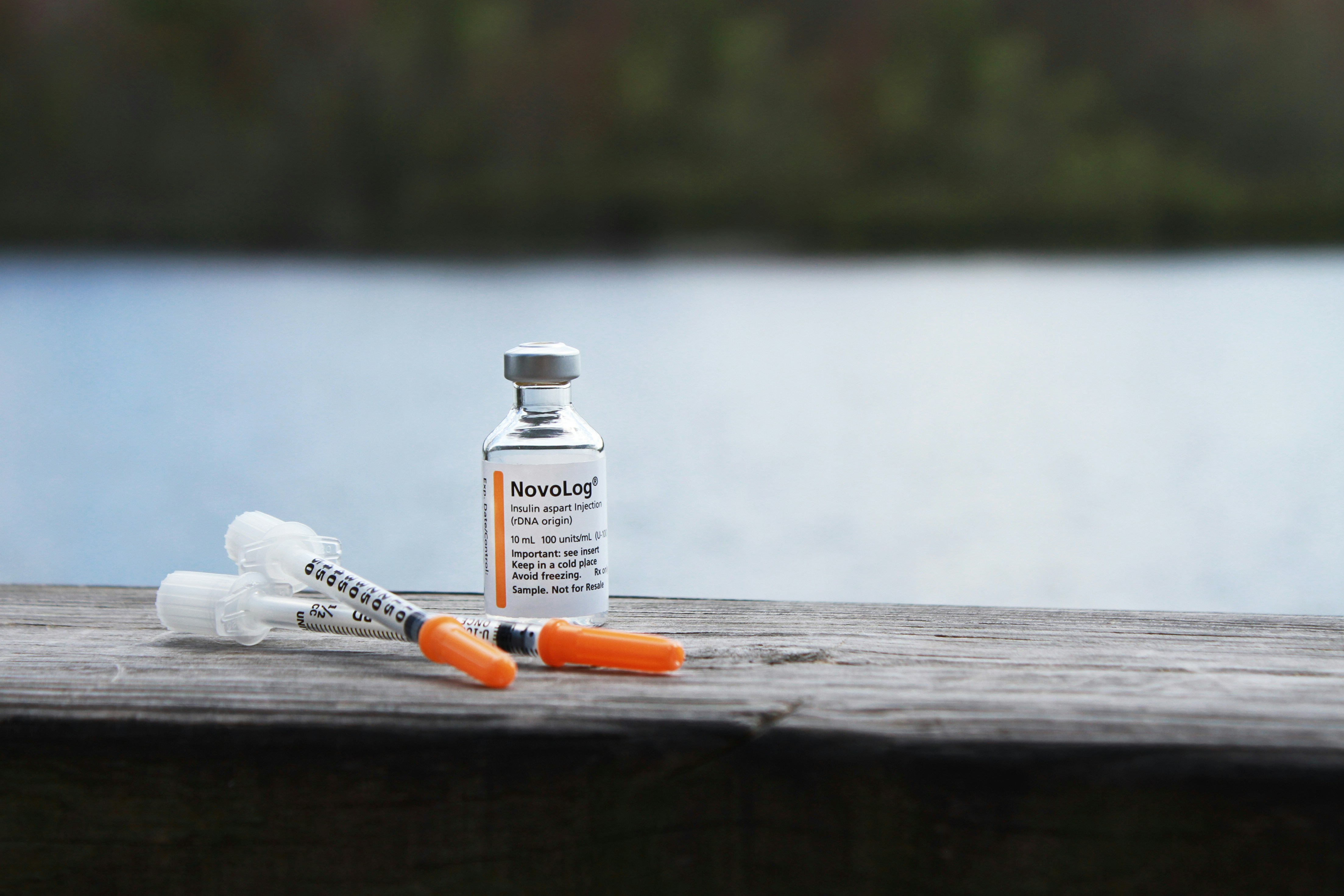How Illness Affects Blood Sugar
6
min read
Apr 30, 2025
When you're sick, your blood sugar can spike—especially if you have diabetes. Learn how infections affect blood sugar and discover simple tips to stay in control during illness.
What You Need to Know About Infections and Your Blood Sugars
When you get sick, your body has a lot to handle. Not only is it working hard to fight off whatever infection or illness you’ve caught, but it’s also dealing with changes in things like your blood sugar levels. Whether you have type 1 or type 2 diabetes, it’s important to understand how illness can affect your blood sugar, and why infections might cause blood sugar levels to go up. In this post, we’ll take a closer look at how being sick can impact blood sugar, and what you should know to stay on top of your health during an illness.
The Link Between Illness and Blood Sugar
When you're sick, your body goes into “fight mode.” It releases stress hormones like cortisol and adrenaline to help you handle the infection. These hormones are great at helping you fight off illness, but they also have a side effect: they can raise your blood sugar levels. This happens because these hormones make your body release more glucose (sugar) into the bloodstream to give you extra energy for the immune system to do its job. This can be especially tricky for people with diabetes. For someone with type 1 or type 2 diabetes, these stress hormones can make it harder for your body to use insulin effectively, leading to higher blood sugar. Even people who don’t have diabetes might experience changes in blood sugar when they’re sick, but for those with diabetes, it’s more of a challenge.
Can Infection Cause High Blood Sugar?
You might be wondering, “Can infection cause high blood sugar?” The answer is yes. Infections can raise blood sugar levels in several ways. When your body is fighting an infection, it needs extra energy. To get that energy, it makes more glucose and releases it into the blood. Plus, those stress hormones—cortisol and adrenaline—can also increase glucose production and make it harder for insulin to do its job. For people with type 1 diabetes, this can be particularly challenging since their pancreas doesn't make insulin at all. For those with type 2 diabetes, the problem is often that the body either doesn’t use insulin properly or doesn't make enough of it. So, when you're sick and your body’s stress response kicks in, it can cause blood sugar levels to rise.
How Infections Raise Blood Sugar Levels
When you’re sick, your body triggers a whole cascade of changes. For example, when you're infected, your immune system releases inflammatory chemicals to help fight the infection. This process—called the “acute phase response”—can cause an increase in blood sugar. The body responds by increasing the amount of glucose in the bloodstream to fuel the immune system.
For people with diabetes, this means that blood sugar levels can quickly get out of control. And for those with type 1 diabetes, the lack of insulin can make it even harder for your body to use that glucose effectively, leading to higher blood sugar levels.
Infections like the flu, pneumonia, urinary tract infections, or even something as simple as a cold can trigger this process and cause blood sugar levels to rise. So, yes—an infection can definitely cause high blood sugar levels, and it's something to keep an eye on when you’re sick.
Type 1 Diabetes and Illness
For people with type 1 diabetes, managing blood sugar during illness is a bit trickier. Since type 1 diabetes is an autoimmune disease that attacks the pancreas, people with type 1 diabetes can’t produce their own insulin. Without insulin, blood sugar can spike when the body is under stress. During an illness, your body produces more stress hormones, which increases blood sugar. Without enough insulin to help your body use that glucose, the result can be dangerously high blood sugar levels. If blood sugar levels go too high during an illness, it can lead to diabetic ketoacidosis (DKA), a serious complication that can be life-threatening. So, it’s especially important for people with type 1 diabetes to carefully monitor their blood sugar during an illness, adjust insulin doses as needed, and keep in touch with their healthcare provider.
Type 2 Diabetes and Illness
While type 2 diabetes works a little differently than type 1, the impact of illness on blood sugar is still significant. People with type 2 diabetes either don’t use insulin effectively (insulin resistance) or don’t make enough insulin. When you’re sick, your body’s stress response can still cause blood sugar levels to rise, and this is especially true for people with type 2 diabetes.
Even a minor infection, like a cold or a UTI, can trigger a rise in blood sugar. This can be frustrating, especially if you’re already working hard to manage your blood sugar day-to-day. Infections can also make it harder for your body to use glucose effectively, making it a bit of a double whammy when it comes to blood sugar control.
Tips for Managing Blood Sugar When You’re Sick
If you have diabetes, you know how important it is to manage your blood sugar. When you’re sick, it can be harder to stay on top of your blood sugar, but it’s even more important to do so. Here are a few tips to help manage blood sugar when you’re feeling under the weather:
Monitor Your Blood Sugar Often: When you're sick, your blood sugar levels can change more quickly than usual. Be sure to check your blood sugar levels more frequently to catch any high or low readings early.
Drink Plenty of Fluids: Staying hydrated is key, especially if you’re fighting off an infection. Dehydration can make high blood sugar worse, so be sure to drink water, and avoid sugary drinks.
Adjust Your Insulin or Medications: Illness can change how your body responds to insulin, so you might need to adjust your insulin doses during an illness. Talk to your healthcare provider about any adjustments you might need to make.
Eat Balanced Meals: Even if you don’t feel like eating, try to eat small, balanced meals that won’t spike your blood sugar. Stick to foods that are easy on your stomach and that won’t cause huge blood sugar swings.
Rest and Recover: Your body needs time and energy to recover from an illness. Make sure to get enough sleep and rest so your immune system can do its job, and try to keep your stress levels as low as possible.
When to Call Your Doctor
If your blood sugar gets too high (over 300 mg/dL), or if you're having trouble controlling your blood sugar despite making adjustments, it’s important to contact your healthcare provider. Prolonged high blood sugar can be dangerous, and it’s always better to be safe and get professional advice.
Also, if you’re feeling seriously sick—vomiting, unable to eat or drink, or experiencing severe fatigue—it’s time to reach out for help. These symptoms can lead to dehydration, which can make blood sugar control even harder.
Conclusion
When you’re sick, your body goes into overdrive, and that includes how your body handles blood sugar. If you have diabetes, illness can make it harder to control blood sugar levels, but with the right strategies in place, you can manage it. Understanding how illness affects blood sugar, monitoring your levels, and taking care of your body as it recovers are all important steps to make sure you stay as healthy as possible. And if you ever have doubts about your blood sugar management during an illness, don’t hesitate to reach out to your doctor. They’re there to help guide you through it.
Staying informed and proactive is key to managing your health—whether you’re dealing with diabetes or just trying to stay well during flu season. Take care of yourself, and your blood sugar will be easier to manage in the long run.








